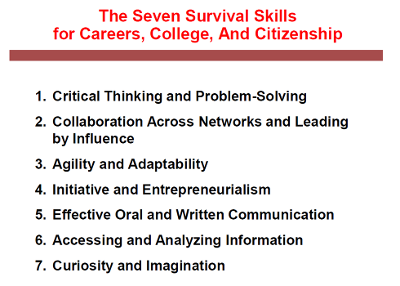By Robin Smith
Today, instruction material and course curriculum in our schools, public and private, amount to culturally driven content that falls into the category of teaching what to think: gender identity, safe sex and birth control options, role play to demonstrate racial and socio-economic divisions as well as injecting political topics and agendas.
Rather than curriculum approved by “experts,” what exactly do our students need to survive in changing labor markets, tough economic times and to be ready for the next trends in workforce and opportunities in their futures?
In classic education, students are taught a common set of skills–reading, writing, arithmetic and foundational content that is built upon year after year that, metaphorically, is adding a rung upward in their ladder of success. These common skills apply to any discipline and transfer from one career to the next. This ladder to success is fortified by the idea of how to think for oneself rather than being told what to think.
Tony Wagner, known for innovation in education as a senior fellow at the Learning Policy Institute and time in the classroom as a teacher and principal, has researched seven survival skills children need in the 21st Century that are infrequently being taught in schools today.
Understand that in America, 54% of adults have a 6th grade literacy level. So, these survival skills mean little if schools continue to chase cultural topics rather than literacy. Nevertheless, here are the 7 Survival Skills as specified in almost 100 interviews of leaders “from Apple to Unilever to the US Army” for Wagner’s book, The Global Achievement Gap: Why Even our Best Schools Don’t Teach the New Survival Skills our Children Need:
1. Critical Thinking & Problem-solving: Able to ask questions that elicit and reveal the right answers.
2. Collaboration Across Networks & Leading by Influence: Because most work is done in teams, being self-motivated while effective in teams is essential. Leaders emerge through effectiveness in building relationships in these teams.
3. Agility & Adaptability: Due to ever-changing needs in the workplace and workforce, possessing critical thinking skills and problem-solving while being coachable to the common mission or goal is mandatory.
4. Initiative & Entrepreneurialism: Being a self-starter and pro-active are disciplines refined through practice and reward coupled with determination to find solutions, even when creativity must be applied.
5. Effective Oral & Written Communication: A foundation of literacy is the answer and only solution to these profoundly critical skills that transcend any job, career or vocation.
6. Accessing & Analyzing Information: Having information is useless if one can’t comprehend its meaning and application.
7. Curiosity & Imagination: Improvements come from innovations, which come from curiosities and imagination.
Lifelong learning is necessary for success, so read, read, read then encourage questions. Narrowing achievement gaps academically narrows opportunity gaps, which translates into success.

